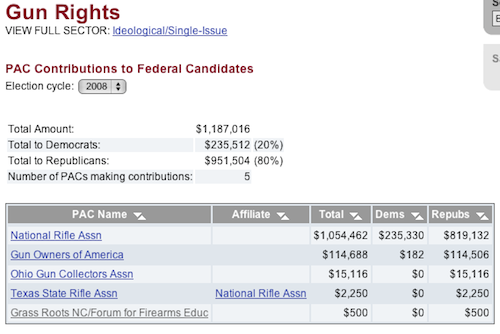Red State is reporting today that NRA has issued a gag order to its Board about the Kagan hearings. This misunderstands how NRA works. Staff can not gag Board members. All they can do is ask them not to get involved in the proceedings. Perhaps the can demand it too, but their opinions for punishment are fairly limited. Without backing from key members of the Board of Directors, there’s not really a whole lot staff could do to retaliate against a recalcitrant member. If they are enforcing a true gag order, then it would need to have backing from other key board members.
In the next question, it makes sense whether to ask whether or not it makes sense for NRA to ask its Board members to stay out of this. I would argue that it does, from their point of view. That said, I was happy to see Sandy Froman testifying against Sotomayor, but it’s worth noting I recall that she had to note on a few occasions she was there on her own accord, when Senators confused her position with NRA’s. Dave Kopel, not being directly associated with NRA, was a welcome, and I would not have an issue with him testifying against Kagan either. Halbrook also testified against Sotomayor, which was an issue because he is likely to appear before the Court at some point on a Second Amendment issue, and I don’t think it was wise for him to have gotten involved in a confirmation hearing in this regard.
I can see why staff would not want this complication, and don’t want Board members trying to force their hand in regards to what position to take on the confirmation. But this is pretty standard internal NRA politics. and not evidence of any betrayal, except maybe to the notion pushed by Red State that they ought to be the National Republican Association.
UPDATE: When I mention it’s pretty standard NRA politics, I mean it in the sense that Board members do things fairly regularly that staff wishes they wouldn’t do. Note also that I don’t speak of staff as an organic entity. NRA’s employees are made up of individuals who have different opinions on different matters, and is no more an organic entity than at your workplace. But for the sake of argument we can say Executive Staff — namely the people who have considerable influence inside the organization. That’s a smaller number of people, who’s viewpoint you could say comes closer to being an organic viewpoint within the organization.
What is Executive Staff going to do if they believe board member has done something problematic? They are elected to the position. The only way you can retaliate against them is through the Nominating Committee, which is an organ of the Board, and not Staff. This is not to suggest Staff can exert no influence over this process at all, but the nominating process is such that the Committee has the ultimate power. If the members of the Nominating Committee don’t agree with Staff, the Nominating Committee wins. I can promise you, over the years, the Nominating Committee has nominated quite a number of people Staff wishes they didn’t. That’s the way NRA works. Even if the Nominating Committee gives you the cold shoulder, you still have the opinion of running by petition, requiring 250 voting members to get on the ballot. Most Board members, in my experience, try to do this anyway, even if the Nominating Committee is sure to renominate them. That said, getting rejected by the Committee is, with rare exception, a ticket off the Board. So if there is a gag order, it must have the backing of the members’ elected Board members. Otherwise it’s just a polite request.

